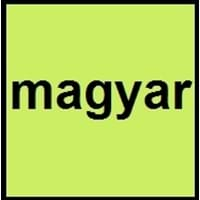Xhosa vs Hungarian
- Xhosa has 15 click sounds, borrowed from the khoi-khoi and san languages of the South Africa.
- The same sequence of consonants and vowels can have different meaning when said with different tones, so Xhosa is tonal.
- Hungarian language has only preserved most of its ancient elements.
- 'Magyar' is the Hungarian name for the language, the 'Magyar' is also used as an English word to refer to Hungarian people.
Xhosa and Hungarian Language History
Comparison of Xhosa vs Hungarian language history gives us differences between origin of Xhosa and Hungarian language. History of Xhosa language states that this language originated in 16th Century whereas history of Hungarian language states that this language originated in 1192 AD. Family of the language also forms a part of history of that language. More on language families of these languages can be found out on Xhosa and Hungarian Language History.
Xhosa and Hungarian Greetings
People around the world use different languages to interact with each other. Even if we cannot communicate fluently in any language, it will always be beneficial to know about some of the common greetings or phrases from that language. This is where Xhosa and Hungarian greetings helps you to understand basic phrases in Xhosa and Hungarian language. Xhosa word for "Hello" is Molo or Hungarian word for "Thank You" is köszönöm. Find more of such common Xhosa Greetings and Hungarian Greetings. These greetings will help you to be more confident when conversing with natives that speak these languages.
Xhosa vs Hungarian Difficulty
The Xhosa vs Hungarian difficulty level basically depends on the number of Xhosa Alphabets and Hungarian Alphabets. Also the number of vowels and consonants in the language plays an important role in deciding the difficulty level of that language. The important points to be considered when we compare Xhosa and Hungarian are the origin, speaking countries, language family, different greetings, speaking population of these languages. Want to know in Xhosa and Hungarian, which language is harder to learn? Time required to learn Xhosa is 44 weeks while to learn Hungarian time required is 44 weeks.





